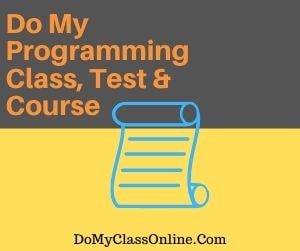Home >> Quiz >> Programming >> Computing In The Arts
Pay Me To Do Your Computing In The Arts Online Quiz
In online knowing, assessments and determining student's capabilities is very challenging for instructors. Sometimes the instructors took many days to check the present progress of students on exams, tests and assignments. The teachers likewise ask students to develop tasks and presentations which are consisted of in the Take My Computing In The Arts Online Quiz. Portals are developed in this way, that it will help all trainees and teachers in evaluations and finding out the elements of the courses for students. When measuring of trainees present development are done which likewise includes private and group projects done by the students, intangible aspects are consisted of. It also depends on the nature of projects and quizzes the instructors are offering to trainees and the instructors can keep their tracks and can acquire a sense of achievement. Students can accomplish optimal development in their assignments and projects through gamification. The gamification assists the trainee to play various games or take an involvement in different video games that is a method of finding out the courses easily. The main function of gamification in Do My Computing In The Arts Online Quiz that it produces interactions and optimize the enjoyment of students in their courses. As Do My Computing In The Arts Online Quiz are based upon distance learning, so they can be dull. So this is the most typical method to develop engagement in online classes. In this way the instructor or instructor will also have a concept that the number of trainees are participating in Can Someone Do My Computing In The Arts Online Quiz well. It will end up being much easier for instructors to evaluate the trainee's progress and they can watch on the student's existing activities.

Limitations of Pay Me To Do Your Computing In The Arts Online Quiz (The Sky, the Limits).
The more versatility is the more constraints trainees dealt with in Take My Computing In The Arts Online Quiz. The instructor of the course might supply an individualized feedback but not according to the each trainee viewpoint. For some courses, the students face troubles and they have lots of concerns to ask the instructor in this method Google moderators help the student to communicate their questions.
Kinds Of Can Someone Do My Computing In The Arts Online Quiz & Classes.
There are various terminologies which you may have heard which are related to Take My Computing In The Arts Online Quiz and classes. There are some definitions which are utilized on different portals which we always referred to Take My Computing In The Arts Online Quiz. There are 7 types of Hire Someone To Take My Computing In The Arts Online Quiz taken by trainees depending upon their choices, needs and requirements.
Flipped Computing In The Arts Quiz.
Trainers tape their speakers and publish them on websites with the material below them. It is an open-source way. Students who are enrolling can see all the learning material published by the instructors and instructors in their folders. This might include pictures, videos, graphs and short intro or reading material for students so that they can discover new subjects. The advantage of turned course is that students can do their projects according to their concepts and they can select any time which suites them the best. In flipped courses instruct may act as facilitator, advisor and coach who response to students queries. These kinds of courses comprises of tiny lectures which are consecutive based. Whenever the trainees feel any confusions and difficulty, they can ask their trainer. This kind of class invest more time in active knowing so that trainees and instructors will interact with each other to share ideas and info on which they are working for. Trainers considers "active learning" important element of the flipped-model.
Hybrid Computing In The Arts Quiz.
Hybrid courses are more like in person classes where students are being in front of the video live streaming talks. Attention of students is needed while went to these types of classes. Hybrid classes are brand-new principle of finding out courses and various activities. Teachers make possible to lessen the time invest by students. Hybrid model is a traditional method where trainer interacts with face-to-face which is can not be decreased or not removed.
Web-Based Computing In The Arts Quiz.
Web-based classes are most common and often class which are completely based on online structure that's why we use "web-based" term for these types of classes. The instructors use Moodle, black boards and Canvas to move the info to trainees connected to their syllabus, discovering materials and projects. It also includes the communication in between trainers and students. Some of the web-based classes are self-paced. These classes have likewise include due dates for exams, quizzes and projects.
Web-Enhanced Classrooms.
Learning management systems play a crucial role. When students will take class this will be just like a standard kind of class. This type of trainer conduct classes on a schedule day, time and a particular date. The location is likewise discussed often students go to attend their classes or sometimes they just go to these classes through web. The course requirements and activities may vary from each other however elements of the courses are determine by the trainees quickly. The instructor defines each point clearly according to the schedule of the students. If students will follow the guidelines and deadline they will be versatile.
Peer Guideline.
Trainees in peer learning, found out the concepts on their own quickly according to the peer direction. These types of tests are designed to focus the student's attention so that they will interact with the individuals. The trainees who are facing common troubles in understanding their material may be offered some questions of 3 minutes so that the trainees will formulate the answers with their own concepts and perceptions.